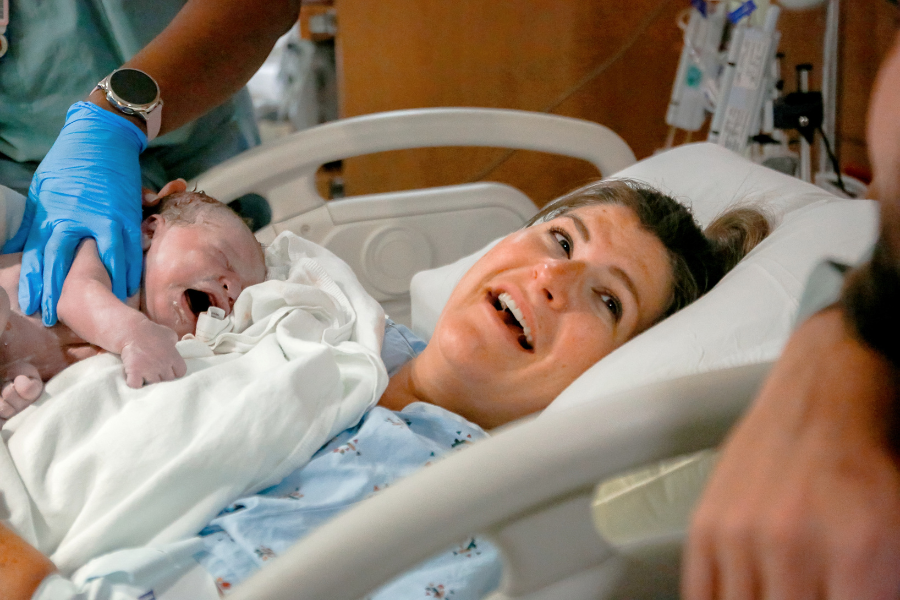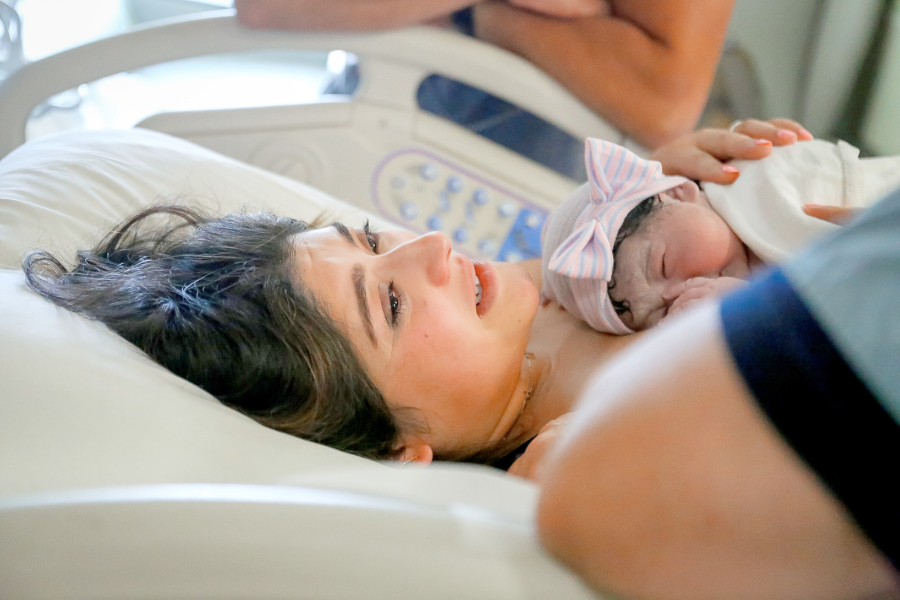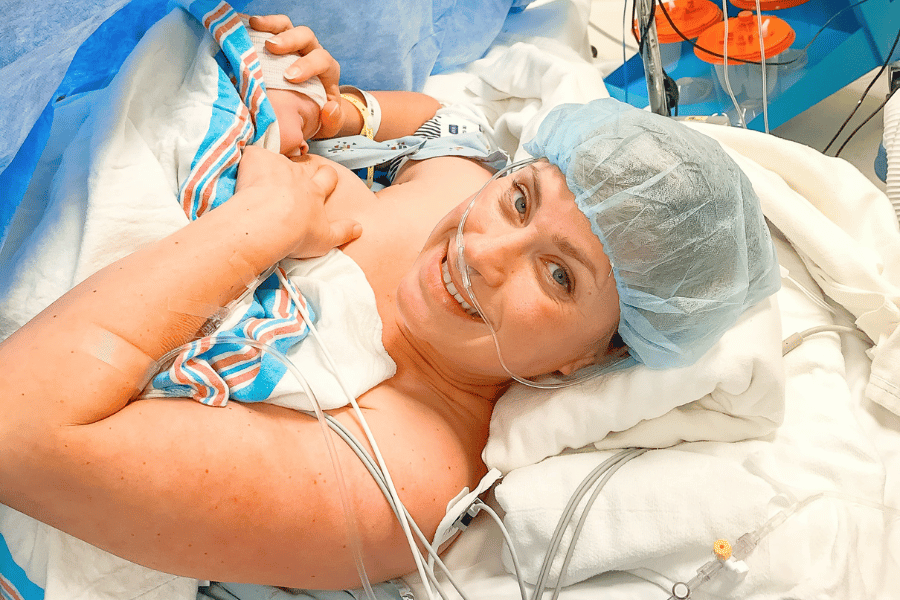Figuring out what those first baby kicks feel like can be tricky! Today I’m going to unpack quickening in pregnancy and provide you with the information you need to know.
After this you’ll know exactly what to look for when it comes to those first baby movements. Let’s get down to it!
Follow @mommy.labornurse on Instagram to join our community of over 650k for education, tips, and solidarity on all things pregnancy, birth, and postpartum!
What is quickening?
To put it simply, quickening refers to the first fetal movements you feel during pregnancy. Quickening is felt at different times by different mamas and can also feel different to each person.
A mama that has experienced pregnancy and quickening before might notice it earlier than a first time mom. It can be difficult to differentiate quickening from things like gas bubbles and normal digestion.
When do you feel quickening?
Quickening can be felt at different times for different people but is usually noted sometime between 16-20 weeks.
If it’s not your first baby and you have experienced quickening before, there is a good chance you will notice it earlier the 2nd + time around. The reason for this is because you know what to look, or I guess feel, for and are less likely to confuse it with gas or digestion.
The location of your placenta might also play into when you feel those first movements. An anterior placenta can act as a “barrier” and muffle those early movements.
This isn’t a cause for concern, but just know that you probably won’t feel quickening quite as early because of it.
When can my partner feel baby move?
Your partner might start feeling baby move anywhere from 20-24 weeks. Keep in mind that there are things that might impact when this happens for your partner, so if you are getting close to that 24 week mark and your partner has not yet felt baby move, don’t panic!
Again, having an anterior placenta will delay when this happens because of the placenta cushioning those movements. Mama’s anatomy might also play a role in it. If you are a plus size mama, with a little extra padding around your belly, your partner might not feel baby move quite as early!
What does quickening feel like? What do flutters feel like?
You could poll 20 mamas to ask what quickening feels or felt like to them and get a different response from each. Trust me, I’ve heard it all! But most commonly I hear that it feels like little bubbles or flutters in the belly. And this brings me to my next point…and that is, “What do flutters feel like?”.
Have you ever experienced butterflies in your stomach before? Maybe you had to give a speech in front of a bunch of people or had a job interview. Well, a lot of people describe those first baby flutters feeling like nervous/anxious butterflies in your belly.
Does quickening feel like cramps?
I’ve heard quickening described as a lot of things, but it’s not typically described as feeling like cramps. A cramping feeling in your belly during pregnancy can be normal and can be caused by different things, but it’s not usually associated with quickening.
Related Reading: Everything You Need to Know About Pelvic Pain During Pregnancy (Right Now!)
Where do you feel quickening?
To answer this question broadly, quickening is felt, well, in your belly. Shocking, right? Earlier in pregnancy, your uterus is still low in your abdomen so you can expect to feel those initial movements pretty low in your belly.
As your pregnancy progresses and your uterus starts to rise up and out of your pelvis, you will start to notice the movement a little higher up. As you get into your third trimester, baby’s movements will begin to feel more like kicks and jabs and less like flutters.
What do those first baby flutters feel like?
So, you’ve heard me say that the first baby flutters can feel different for different people, but we haven’t really covered exactly what they might feel like.
I actually polled the MLN community to see what they had to say and here are a few of the responses:
- “Like someone is thumping you from the inside of your stomach”
- “Popcorn going off in the microwave”
- “Like gas”
- “Felt like little fishies in my belly”
Wrapping up
I hope I have equipped you with the knowledge and info to identify those first baby flutters and movements when they happen.
Even with everything you’ve learned today, it can still be tough to differentiate between quickening and gas bubbles. I know that waiting to feel those first kicks can feel like an eternity – I have been there mama!
But trust me, one day you’ll be sitting around and feel those little “fishies” in your belly, and you’ll just know. And it will be one of the most memorable parts of your entire pregnancy!
Cheers to an even better birth, mama!
And here are some more MLN resources for you to check out:





